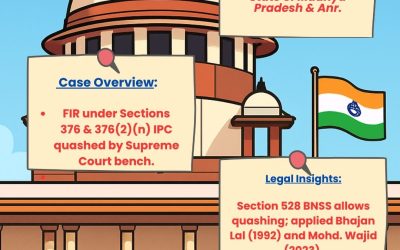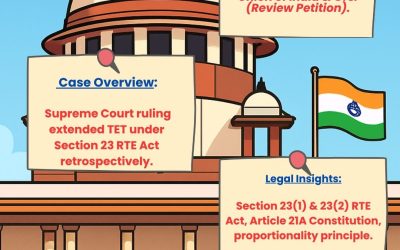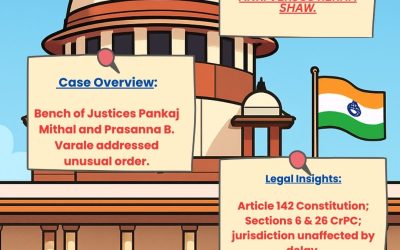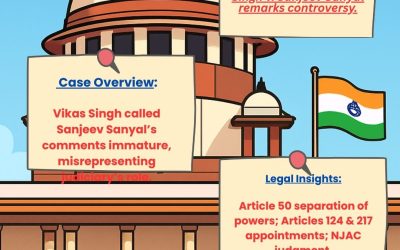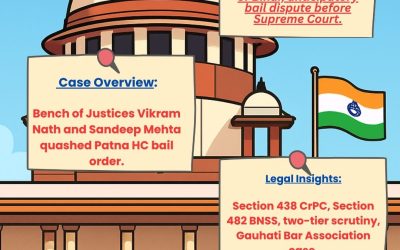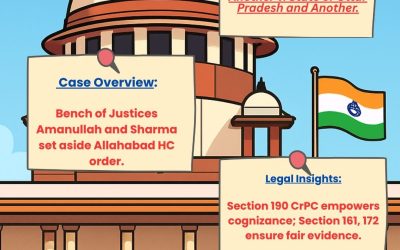
Supreme Court grants anticipatory bail, criticises High Court for unusual approach in corruption case.
Case in NewsThe Supreme Court criticises High Court on anticipatory bail while granting relief in corruption charges case . |
Discover powerful Latin Maxims and simplify complex legal terms in seconds.
Case Overview
Case Name: Gursewak Singh v. State of Punjab | SLP (Crl.) No.11234/2025
A bench of Justice JB Pardiwala and Justice Sandeep Mehta of the Supreme Court of India heard a plea by Gursewak Singh seeking anticipatory bail in connection with a 2021 FIR under Sections 7 & 7A of the Prevention of Corruption Act and Section 120B IPC . The petitioner approached the apex court after the Punjab and Haryana High Court issued directions to police instead of deciding his bail plea .
Step into the world of justice with Courtroom Chronicles.
Key Aspects
The Court examined the background and issues arising from the High Court’s unusual approach . Instead of ruling on the bail plea, the High Court had questioned the police for non-arrest which the Supreme Court found improper .
- FIR registered in 2021 alleging bribery and conspiracy under the Prevention of Corruption Act and IPC .
- Petitioner reinstated in service in 2023 after suspension; feared arrest only in 2025 .
- High Court asked DGP to explain delay in filing chargesheet and non-arrest of petitioner .
- Co-accused already granted anticipatory bail despite being alleged bribe receiver .
Legal Insights
The Supreme Court emphasised the correct application of legal provisions while granting anticipatory bail :
- Section 438 CrPC – empowers courts to grant anticipatory bail in cases of apprehended arrest .
- Sections 7 & 7A, Prevention of Corruption Act, 1988 – penalise public servants for accepting or demanding illegal gratification .
- Section 120B IPC – punishes criminal conspiracy to commit an offence .
- Court clarified that non-arrest for four years strongly justified bail under judicial discretion .
Court’s Verdict
The Supreme Court disapproved the High Court’s “cryptic and unusual” order, stating it should have decided the matter on merits . Observing that prolonged non-arrest itself was a strong ground, the Court granted anticipatory bail directing that if arrested, the petitioner be released on bail subject to conditions imposed by the Investigating Officer .
The LawGist ensures exam success with quality notes—TPL, Current Affairs, Recent Judgments, and more. Backed by trusted resources and videos, The LawGist is every aspirant’s first choice. Discover more at thelawgist.org.
Source- Supreme Court of India
Read also – Indian Penal Code


